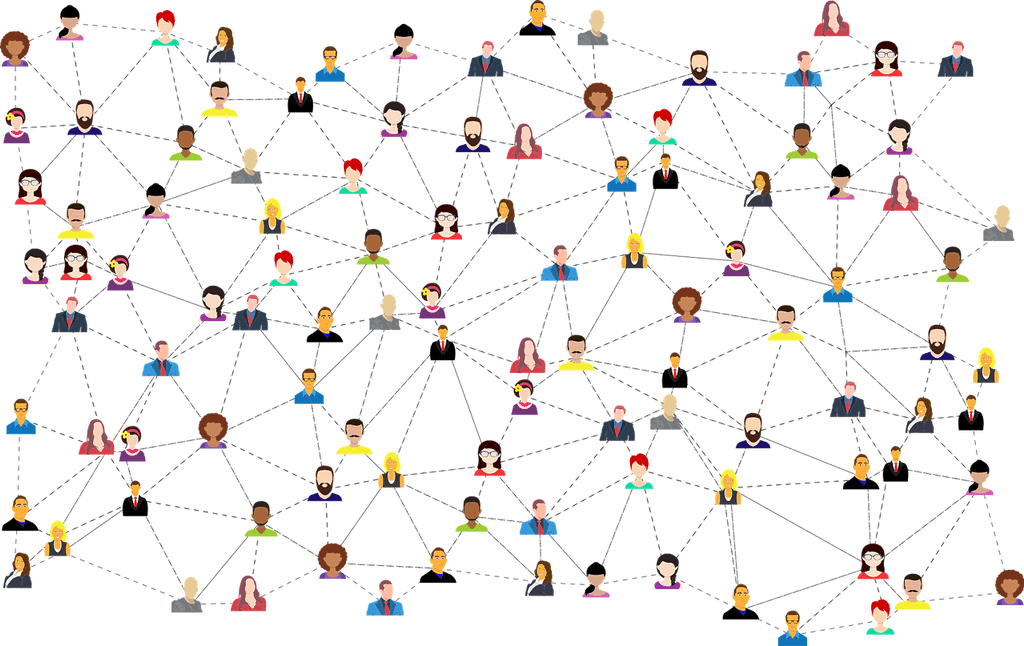Essential resources for entrepreneurs and inventors in Chicago
The city of Chicago is home to many inventors, many of whom have won the Nobel Prize for their inventions. Alexander Graham Bell, for example, invented the telephone in 1876. Another Chicago-born inventor, Elisha Gray, submitted a patent for the telephone on the same day as Bell. The invention of the smartphone is an example of the impact of Chicago on modern technology.
Many inventions from Chicago are celebrated widely in the media — the Ferris Wheel (1893 World’s Fair), deep dish pizza (Pizzeria Uno in 1943), the brownie (Bertha Palmer and the Palmer House, 1893), the world’s first modern skyscraper (Home Insurance Building, 1888) and Playboy magazine (Hugh Hefner, 1953). These inventions have made many people’s lives easier.
Inventors and patents from the city of Chicago are important indicators of a strong regional economy. In general, high levels of patenting in an area indicate that the workforce is skilled and the business climate is strong. Patents are an important indicator of wealth for regional companies and individuals.
Studies have shown that workers in industries with high levels of intellectual property earn 46 percent more than their counterparts who don’t work in these industries. Inventors in Chicago produced 4,077 utility patents in 2017.
Image credit: UnsplashYou can learn more about the resources and programs to help you in your invention journey, including, Chicago-Kent Patent Hub, the Young Inventors and Entrepreneurs Program, and the Chicago Inventors Organization, and many others here. It will give you an overview of the various activities and opportunities that can help you become an inventor.
Chicago-Kent Patent Hub
The Chicago-Kent College of Law is home to one of 21 patent hubs in the United States. The purpose of these patent hubs is to help low-income inventors obtain protection for their ideas. The hub currently includes 78 attorneys from 21 law firms.
Together, these attorneys have provided more than 5,400 hours of pro bono legal assistance to inventors. It also provides free legal services to students in Chicago and surrounding communities.Applicants must be an Illinois resident with a total household income of 300% or less of the federal poverty guidelines, which are published every year by the Department of Health and Human Services.
To check if you are eligible for this program, visit the Chicago-Kent College of Law’s website and multiply your family size by three to determine your eligibility. This will help you determine if you qualify for free patent services. Once you qualify, the next step is to choose a patent attorney.
The Chicago-Kent Patent Hub is a program run by the IIT Chicago-Kent College of Law that pairs low-income inventors with volunteer patent attorneys. In addition to the USPTO’s Patent Pro Bono Program, this program has regional administrators in every state.
Regional program administrators match qualified inventors with patent attorneys who live in their area. The attorneys matched with inventors are licensed to practice law before the USPTO. Once the initial application is submitted, the IP attorney will then review the application to see if the applicant meets the requirements.
The IP attorney will discuss the patent application with the inventor. Usually, this step takes at least six months. It is possible to submit multiple applications for a patent. The IP attorney will check the application to make sure that it meets the requirements of each patent. The attorney will evaluate the application and provide legal advice.
Image credit: UnsplashChicago Inventors Organization
The Chicago Inventors Organization (CIO) is a nonprofit that supports and advocates for the growth of low-income inventors and businesses. Their goal is to help innovators develop a business that will create jobs and sustain local communities. The CIO offers a variety of resources to assist inventors, from educational seminars to credible resources.
In 2015, they conducted 27 educational seminars, held one annual conference, and provided over 426 consulting sessions with its members. They also provided entrepreneurship training to over 70 entrepreneurs and held two Investor Pitch Workshops.
The Chicago Inventors Organization is the only organization of its kind in the Chicago land area that offers free, positive, and credible resources to innovators. The organization is also recognized by the U.S. Patent and Trademark Office, which is a big reason to join.
It’s also a great resource for patent lawyers, paralegals, and patent agents in the area. This association is at the forefront of the innovation process in Chicago, and its members can stay current by networking with peers and industry professionals.They organize CIO Inventors Academy seminars, weekly CIO member networking events and pro bono patent program programs to help keep inventors on track.
They also host CIO Inventors Academy seminars with industry experts as well as their CIO volunteer prototyping group. The CIO is the only such organization in Chicago that provides access to untapped talent. This is crucial for creating jobs and increasing state revenue.
Young Inventors and Entrepreneurs Program
The Chicago Inventors Organization (CIO) has created the Young Inventors and Entrepreneurs Program (YIE) to introduce students to STEM subjects and innovative techniques. The program also features workshops that educate youth about the concepts and skills of entrepreneurship, financial literacy, and intellectual property.
Participants are also exposed to entrepreneurship and entrepreneurial business concepts, which can help them start their own business. A Chicago-based accelerator and startup incubator, the program offers mentorship to students and a platform for their ideas.
The Chicago Student Invention Convention (CSIC) provides a unique environment that encourages creativity. During the 10-week curriculum, students are guided by industry professionals, who provide mentoring and guidance.
In addition, students participate in a series of public competitions. Many of these students have gained national attention and have been paired with mentors in the industry. Some have also had the opportunity to pursue patents and build additional prototypes. Moreover, CSIC students are the city’s young ambassadors of STEM education.
The partnership between the City of Chicago and the University of Illinois creates a pipeline for innovation, boosting the state’s economy. Innovative innovations made in Illinois are now widely used around the world, impacting all sectors of technology.
Moreover, the City of Chicago and the University of Illinois are collaborating to develop new products and technologies that will have a positive impact on the world. However, this cooperation should be encouraged, not hindered.
The Chicago YEA! program is committed to helping Chicago students develop entrepreneurship skills and launch a successful business. The program also provides networking opportunities, including pitch competitions for business plans.
The competition is nationally recognized, and students can participate in local business headquarters, attend local trade shows, and learn how to register their companies legally. Young inventors and entrepreneurs can also learn from speakers from the area’s top companies.
Image credit: UnsplashUniversity of Chicago
The University of Chicago was founded in 1890 by John D. Rockafeller and the American Baptist Education Society. It has been a symbol of Chicago’s innovative past.
US News ranked Chicago #3 for the best National University in 2019, and it is home to America’s #1 accelerator, The Polsky Center for Entrepreneurship and Innovation.
The center offers The College New Venture Challenge (CNVC), every year during the Winter quarter. This class is considered “one of the best startup accelerator programs in America.”The University of Chicago is a place that companies like Grubhub and LuminAID can thrive.
University of Illinois, Chicago
The University of Illinois, Chicago has a long history of teaching students how to combine real-life and textbook theory. This makes it a place that medical students can save lives for future generations.
The Largest Medical School in America, which has been open since 1859, has provided resources like the Innovation Center to help its students innovate.
The Engineering Innovation Building will open to students who wish to study engineering at the university starting in 2019. The university will have its first high-bay structural research laboratory, along with many other resources to help students and professors study large-scale components.
Startup Grind Chicago
Startup Grind Chicago was founded in 2012 by passionate Silicon Valley entrepreneurs.Startup Grind is a global startup community, is the largest independent startup community that actively educates, inspires, and connects entrepreneurs worldwide in partnership with Google For Startups.
Monthly events that feature successful entrepreneurs, innovators and investors are the foundation of their global community. They share their experiences in building great businesses. Startup Grind was founded in Silicon Valley and has helped millions of entrepreneurs to build their businesses, find strategic partners, secure funding, and connect with them.
They host monthly fireside chat interviews and startup mixers to do this. Entrepreneurs would be better able to thrive in today’s competitive world if they did this.
eWomen Network
eWomen Network is a premier success system for women entrepreneurs. It helps women inventors who want to grow, scale and launch their business. Their network includes over 500,000 women who are connected through 118 chapters in the United States, Canada and Australia.
They also host the #1 Women’s Entrepreneur Conference in North America each year. Their goal is to help one million women become fulfilled and generate one million dollars annually. CNN has named eWomenNetwork Foundation an American Hero for its philanthropic outreach and support to those in greatest need.
Chicago Latino Networking
CLN It is currently the largest network of its type, reaching more than 80,000 Chicagoland Latinx entrepreneurs and professionals! This niche group of trend-setters is served by digital and social media platforms, custom events, and signature events.It is designed to help those of Latino heritage stand out in their fields and communities.
The Chicago Latino Networking was founded in 2000. It is the United States’ largest network of Hispanic entrepreneurs. Our online and offline platforms allow us to connect brands and organizations with our audience. They are efficient, effective, and have high ROIs. CLN has consistently delivered top-notch events, and superior ad campaigns results, proving that it is best placed to offer brands, who value the Latinx market with exclusive access.
Image credit: PixabayChicago Student Invention Convention
The student invention competition is an important component of the city’s innovation ecosystem. Since 2002, the Chicago Student Invention Convention has helped students in the region create prototypes of their own inventions. More than 1,500 students participated in this event, which culminates a 10-week innovation curriculum.
It encourages student invention as a method of creative problem-solving. This event has been taking place for 10 years, and past winners have won national awards, been paired with industry mentors, and even had their prototypes made.
Bunker Labs
Bunker Labs, a national network of veteran entrepreneurs, is dedicated to helping veterans start their own businesses. It provides them with all the resources they need to succeed.
Bunker Labs offers gamified online classes and Bunker Labs provides its members with programs like the CEO circle program or the WeWork Veterans in Residence program.
The WeWork Veterans in Residence program provides 6 months of co-working space for 10 veteran companies in 14 cities. However, the CEO Circle program is only available to veteran-led businesses who have reached the end phase.
TechNexus
TechNexus was founded in 2007. It is an incubator that funds, finds and grows technology ventures. They have helped over 450 ventures to raise $400 million capital in the ten years they have been in operation. This is because they combine venture incubation, capital and corporate innovation.
Forbes magazine states that TechNexus does not place time limits on the companies it accepts. Instead, they invest in each company on an individual basis. Every company has a fair chance to succeed in Chicago and beyond.
https://www.ycombinator.com/documents/
https://techcrunch.com/
https://www.uspto.gov/learning-and-resources/startup-resources
https://www.sba.gov/business-guide/plan-your-business/fund-your-business
https://hbr.org/1998/11/how-venture-capital-works
http://patentpc.com/
http://uspto.gov/
Free Patent Filing Assistance In Corona
Free Pro-bono Patent Help In Minnesota
Inventors and Patents From the City of San Bernardino
Inventors and Patents From the City of Pomona, California, USA
Inventors and Patents From the City of Mesa




